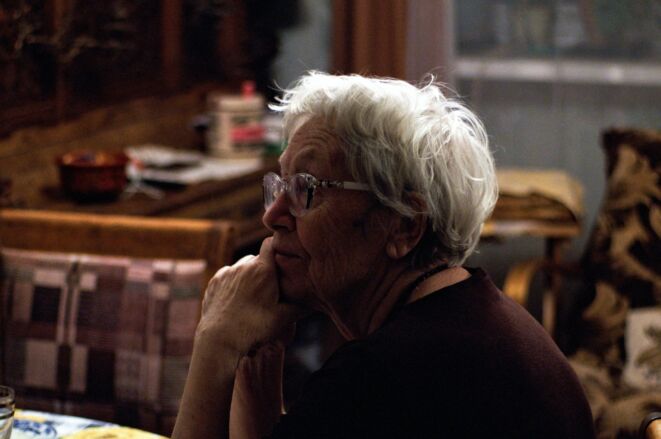Providing for life circles in which elderly people with dementia can live freely and safely

Many residential care centres have a locked department for people suffering from dementia. A protected environment where they receive extra care. An understandable solution, naturally. But one person can do more than another. Dementia is a process. At the same time, freedom of movement is very important - including for people with dementia. Give them as much freedom as they can still handle, in complete security, by creating life circles.
What are life circles for people with dementia?
When you establish life circles for your residents with dementia, you literally define for each person how far they can go within your residential care centre, across the different departments. Moreover, you let the size of the life circles depend on how much care they need and how well they still function.

For one resident it will be best that he only move about within the department, while another can freely stay anywhere within the residential care centre. In the future it must even be possible to take elderly people with dementia along to the store, in the neighbourhood, if they are still capable of this. Everything in complete safety, let that be immediately clear.
Thanks to the life circles, you give elderly people with dementia as much freedom of movement as their situation allows. In a controlled manner you offer them the space to be as free as possible. In this way their quality of life remains optimal, and the risk of health problems due to immobility is reduced.

How do you create life circles for people with dementia?
First you map out - perhaps together with the general practitioner - what the medical situation of the older person with dementia still authorises. How much freedom of movement does a person want and how much can you still grant him or her, without impairing the proper care? Then you define the feasible life circles per resident, on the basis of the analysis.
All elderly people with dementia moving freely in their own life circles, tailored to their specific needs and possibilities ... In that case, how can you continue to monitor each person? It’s perfectly possible, thanks to the right technology: LynX® lifeline, our infrastructure for localisation built around a light management system and smart light fittings, combined with the alarm and communication platform LynX® connect.

Locate and follow residents closely, in complete privacy
When you choose our technology and your residents wear a bracelet, you can monitor precisely where the elderly individuals with dementia are located within your residential care centre and where they’re headed. You not only detect them but also follow them, because the bracelet continuously reports their position, via Bluetooth in the lighting fixtures of LynX® lifeline. .
At the same time, the system makes it possible to close doors for an older person with dementia when he comes into the area, depending on what his life circle authorises. Or to automatically make a lift unusable for a resident when he approaches it. Thus the elderly with dementia live freely within their custom-tailored life circles, with invisible limits.

Freedom within life circles, without compromising care
Do residents with dementia need care while they are moving about freely within their life circles? Then that generates an alarm which quickly reaches - via the bracelet and the connected alarm and communication platform LynX® connect - the proper caregiver, who then receives a notification by smartphone.
The bracelet might also pass on other health parameters, so that you always know exactly how the freely-moving resident is doing. At the same time, the caregiver is not overwhelmed by too many alarm messages, since the passed-on data will first be analysed in order to check whether someone is truly having difficulties.
Life circles with lighting technology LynX® lifeline thus make freedom for elderly people with dementia possible, combined with safety and feasible care.
